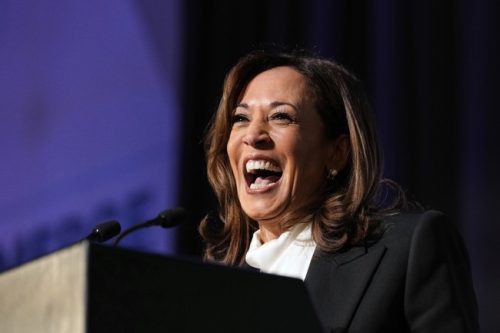The Schumer Shutdown has exposed a raw political strategy: Democratic leaders openly treating real hardship as bargaining chips. This piece looks at blunt admissions from Democratic figures, the Senate math that gives them leverage, the human costs—like looming SNAP cuts—and why Republicans say voters are being used as pawns in a fight over policy and power.
Last week, Democratic Minority Whip Katherine Clark said her party planned to use the suffering inflicted on Americans by the Schumer Shutdown as “leverage” against Republicans in negotiations on re-opening the government. That line landed like a punch because it was honest and chilling at once, admitting that pain for ordinary people can be an instrument of negotiation. She later tried to walk it back, but the damage was done and the intent was clear.
Now her colleague, Sen. Chris Coons (D-DE), has added fuel to that fire, making clear Democrats see the shutdown as a tactical moment. Coons did not mince words when he said, “Republicans control the House, the Senate, and the White House. Frankly, this is our only moment of leverage, and although a very unpleasant tool to use,” on C-SPAN. That admission confirms what many suspected: some Democrats consider a policy of manufactured pain an acceptable route to achieve their goals.
Republicans can point to the facts: GOP majorities in the House and the White House, and control of the Senate numerically, even if procedure demands 60 votes for a CR. Yes, Republicans have the majority. And Republicans have voted at least a dozen times to reopen the government, yet the filibuster and Senate rules give a minority the power to stall. Coons knows the 60-vote threshold traps legislation and that creates perverse incentives for the other side to weaponize suffering.
Chris Coons believes that denying Americans their SNAP benefits may be “unpleasant,” but it’s worth doing because it gives Democrats political “leverage.”
Absolutely deranged. pic.twitter.com/QgwNw8YpBJ
— Senate Republicans (@SenateGOP) October 28, 2025
Coons’s comments sparked immediate backlash, and the reaction was fierce because the optics are brutal—elected officials discussing hardship like a negotiation tactic. Coons was roasted for his remarks. The videos and clips circulating show how ugly this strategy looks when stripped of polite spin and political doublespeak.
The moment turned even grimmer on video, where moments of tone-deaf behavior undermined the empathy leaders are supposed to show. That footage is hard to watch, and the fact Coons did nothing to stop Biden from violating his daughter’s personal space made it worse for many observers. Voters notice when leaders treat family moments and real hardship with casual indifference.
The human toll is not theoretical. Reports say 40 million people are poised to lose SNAP benefits on November 1, and that looming cutoff would hit low-income families hardest. Many of those households are already vulnerable, and cutting food assistance as a negotiation tool is a political choice with real consequences for kids and seniors. Conservatives argue policy should protect citizens, not be leveraged against them for unrelated demands.
This pattern looks familiar across other policy fights: Democrats enact massive programs, then use the fallout to push even more government control as the only fix. Obamacare is the example often cited — passed with promises it would lower costs, and yet discussions keep circling back to expanding government to solve the problems the law created. That same political logic now appears to be driving the Schumer Shutdown approach.
Embedded clips and commentary have pushed this debate into public view, and the more people see, the less plausible the comforting explanations become. The Democratic argument that suffering is a regrettable but necessary lever only deepens distrust among voters who expect leaders to protect constituents, not exploit them. For many Republicans, that breach of trust is the core issue, not some procedural quibble in the Senate.
The political fallout is straightforward: voters will decide whether transactional politics like this are acceptable. When party leaders treat public hardship as a bargaining chip, they risk alienating the very people they claim to serve. Republicans are framing the choice as one between defending law-abiding citizens and letting political theater determine basic services.
Editor’s Note: The Schumer Shutdown is here. Rather than put the American people first, Chuck Schumer and the radical Democrats forced a government shutdown for healthcare for illegals. They own this.






